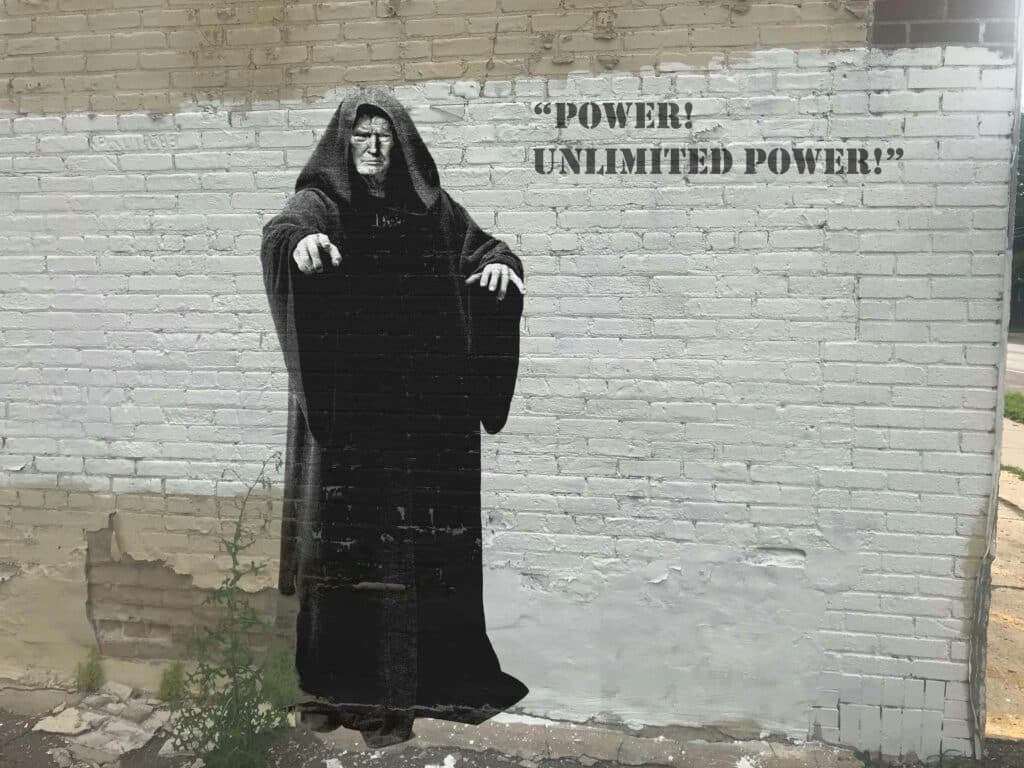Healing Your Inner Teenager: From Inner Conflict to Peace

The inner teen wants to take empowered action (to protect herself and be free) but the problem is she doesn’t yet have the tools because she is still a child, not yet an adult. When she is activated within us due to fear and the impulse to protect, without an “inner mother” at the wheel to comfort and guide, the inner teen can actually perpetuate the problematic programming we received from family and the patriarchal culture, in a misguided effort to be safe and free and in control. This is really important to understand as it’s a form of self-sabotage when we allow a panicked or reactive inner teen to be at the wheel of our self-system, rather than our adult self/ inner mother. Explore the importance of healing your inner teenager and how to start.
This is part 2 in an article series about the inner teenager. Read Part 1 of this series here for more context on the role of your inner teenager in perpetuating patriarchy. Or check out my new mini-course on Healing the Inner Teenager.
The way our inner teen shows up within us has everything to do with what we actually went through as teenagers. Whatever suffering we experienced back then is the key to healing that inner teen today.
Why You Need to Heal Your Inner Teenager
Ways that the traumatized inner teenager can wreak havoc in our systems as adults may include things like:
- Repeating negative, shaming, dark narratives and thoughts into our minds in order to cope with fear (but these negative thoughts are often the same limited worldview as our parents or patriarchal culture so you feel increasingly worse, not better)
- Examples of negative thoughts: “No one is trustworthy. I’m all alone. I’ll never get though this. What’s the point? I’m stuck and always will be. They don’t understand me. I can’t do this. I’m such a fraud, I’m not lovable,” Etc.
- Painting things black-or-white (distortions, catastrophizing)
- Judging and shaming other people as a way to feel in control, gossiping
- Pushing people away and rejecting helpful tools or support (extreme independence)
- Addictive tendencies and sensation-seeking behavior
- Quick to anger and reactivity with others (including violence, throwing things)
- “Pecking order” thinking; trying to one-up others by feeling superior, better-than
- Risky relationships and behaviors, like cheating on a spouse, over-spending funds
- Lying, hiding the truth, manipulating, giving-to-get, omitting the truth, etc.
- “Right is might” kind of thinking. (I’m right, you’re wrong, so I win.)
- Impulsive behaviors that are not thought through; ignoring consequences
- Overtly disrespectful, immature behavior, such as making light of the pain of others
- Hypervigilance, overworking, rigid fixations, perfectionism
- Burnout; pushing yourself beyond your window of tolerance for some external validation
Merged With Inner Teen: Adults Heckle a Grieving Child
A video was recently circulating in the news, showing a Tennessee teenager at a town council meeting explaining that the reason he wanted masks in schools was that his grandmother, a former teacher, recently died of COVID-19 because someone wasn’t wearing a mask. As he was sharing his story the adults in the audience openly heckled and mocked him, so much that he had to pause while speaking due to the loud jeering of the adults in the room. That group of adults heckling him seemed to be fully merged with their traumatized inner teenagers. It was shocking and sad to see that the actual teenager was sharing his pain and the adults responded with attempts to humiliate him. Yet, this is the reality today and how many of us grew up—silenced, shamed, and punished by the unhealthy adults around us.
Unhealed, our inner teenagers may be activated frequently or in complete control. Here are two signs that your inner teenager is screaming at you, her adult self, for attention, rest, and love:
Inner Teenager Distress: The Pressure to Transgress
I was recently talking to a friend who is a mom who has been really stressed out, her husband lost his job and she had to get a second job. To make it even harder, her mother-in-law was creating some conflict between her and her husband. She told me she was surprised to find herself starting to smoke cigarettes every evening after her kids went to sleep. She described it as a way to “do something pleasurable for myself” as a time to “just BE.” But at the same time, she kept having thoughts that said “I’m a fraud. I can’t believe I’m smoking, this goes against everything I believe in.” When I asked her what drew her to cigarettes as opposed to other means to relax, she said “I’ve been under so much pressure lately. I had to transgress somehow!”
It seemed that her inner teenager had gotten behind the wheel and because she was outside her “window of tolerance” due to multiple, compounding stressors. Thus, It was harder than usual for her to constitute her loving inner mother self to self-soothe and find healthier means of “doing something for herself.” She explained that with this realization, her adult is now back at the wheel; she has quit smoking and is using more nourishing means to create some pleasurable “me time” in the evenings including reading light fiction, using a soft, weighted heating pad for her back, and a special candle to use after the kids go to bed. She also downloaded some of her favorite music from her teen days in the ’90s, which helps her connect to her inner teen.
The pull to “transgress” is an important warning signal to our inner mother self, that we urgently need a rest or break of some kind.
In fact, we are probably long overdue by that point, if we feel a sense of desperation and urgency to act out in some way for relief. Then we need to get creative and make that happen within the flow of our daily life. The task is to turn lovingly towards ourselves, slow down, downshift, and nurture ourselves and our inner teen. This includes a need for fun, lightness, and time to just BE and relax.
Inner Teenager Distress: Ignoring Your Inner Signals
Growing up in patriarchy has taught women to ignore their inner signals. This brings me to another point about the inner teenager: As women living in a patriarchal world, we may have learned as teen girls, to ignore our inner signals to survive in a patriarchal, capitalist, white supremacist world; signals that say ‘I need to rest, I’m tired, I need to pee, I need to move my body, I don’t want to talk anymore, I’m exhausted, I want to be alone, I need to get away from here,’ etc. Reclaiming these inner signals and actually acting on them is a powerful act of honoring our inner teenager who had to turn away from those signals to some degree in order to adapt to her family and culture.
Healing Your Inner Teenager Requires Inner Mothering
So, what does the inner teenager actually need from the inner mother?
Our Inner teenagers need the loving respect of our adult self/ inner mother to fill the “mother gap” of what we needed but did not get as teen girls.
This involves creating an “inner mothering” practice in which we show up for our inner teenager in ways that she needs on a regular basis to experience profound changes in our lives. I teach a 2-part inner mothering practice that when practiced consistently, can change your life in profound ways.
1. Validate
The first part is to 1) VALIDATE the inner teens’ feelings; nurturing, appreciating, cherishing, and listening as well as a deep respect for her unique individual self. (Feeling respected is crucial for the inner teen.) We have to anoint and love what our family and patriarchy taught us to reject in ourselves as teen girls. Proactively and consistently expressing love, affection, and respect to the inner teenager helps her to relax and trust your adult self over time; it deepens the bond. It also makes it less likely that she will hijack your system in triggering moments out of distress.
2. Differentiate
The second part is that, AFTER we validate, then we 2) DIFFERENTIATE; lovingly correcting the mistaken conclusions, lies, and illusions we internalized as teen girls that reflect the top-down, anti-life, anti-woman, capitalist, white-hetero-patriarchy. We teach her the empowering truths that our mothers and fathers did not have the capacity to and then guide her to pivot towards them in our daily lives, so that she can finally experience the visceral security of belonging AND being free, of being her own girl.
An Integrated Inner Teenager Is a Powerful Source
What is the energy of your inner teenager when she feels safe, sacred, and secure? The inner teenager is a powerful energy source within us. That’s why healing your inner teenager is so important. When she feels safe and secure, held and loved by the adult/inner mother self, the teen energy can flow and be integrated into our adult lives, creating an internal harmony within our psyches that serves to help us to be true, kind, and in integrity as well as feel the joy and appreciate the wonder of life itself. She is part of the path to sovereignty. These are qualities that we need more of in the world right now.
The Gifts of a Secure Inner Teenager
A healthy, secure inner teen’s energy can manifest in our adult lives in powerfully beneficial ways:
- Be a potent “bullshit detector,” easily sniffing out manipulation, power-over, and disingenuousness
- Be a force for justice and integrity across the board
- Be a fidelity to one’s inner truth and the ethics of honesty and transparency
- Honor one’s right to be sovereign while also honoring others’ rights equally as well
- Be discerning and understanding; a hunger to get to the bottom of things
- True Belonging: A sense that life is trustworthy, interconnected, and benevolent
- Exude Originality; thinking outside the box, innovation
- Hear one’s intuition and act on it, even if it bucks the crowd
- Exhibit the impulse to play and have fun, to move at one’s own pace unrestricted
- Have a healthy desire to explore, grow, learn, play and evolve one’s perspective
- Experience a desire to be honestly, authentically, connected with others
- Love life! Bring Spontaneity, joy, elation, pleasure, and buoyancy
- Feel and know your worth; no need to prove, strive or compete anymore
- Express the joy of doing things without a goal, the joy of being and doing in and of itself
Looking at the above list, it’s easy to see how healing our inner teenager can help us grow individually AND also how our healing can benefit the whole of humanity. The inner teenager has powerful medicine for these times, that is IF we are willing to bring our inner teenager HOME within.
Healing Your Inner Teenager Creates a Bridge to True Presence
When the inner teenager feels loved, she can become a bridge to the transpersonal realm. When the trauma-based impulse to fight, react and protect ourselves is calmed inside, a powerful transformation slowly occurs in which we realize that life is loving, trustworthy, and benevolent. The compulsion to prove ourselves, to compete with others, or to believe negative thoughts begins to dissolve. As the inner teenager feels safe, sacred, and secure, we stop resisting Life. We start to feel the truth of our own innocence and eternal connection with all life. The “shame goggles” slowly dissolve from our eyes, and we can see life as it really is: benevolent, kind, trustworthy, full of wonder, awe, and magic. Life becomes more simple, calm, and peaceful. We live more in the flow of the present moment, trusting life to bring us what we need. We’re no longer driven by fear and desire or focused on control as a means to be safe. Greater compassion for ourselves and for all life emerges.
Inner Mothering is about creating an inner sanctuary of love, comfort, and respect that is there no matter what happens out there in the world.
This requires us to be emotionally regulated most of the time and to make choices accordingly. The more overwhelmed, exhausted, and depleted we feel, the harder it is to embody the loving inner mother. That’s why self-care, self-respect, and boundaries are key to healing your inner teenager.
Questions for Reflection: Healing Your Inner Teenager
- What were your teen years like?
- In what ways did you not feel safe or supported as a teen girl?
- How did you handle your feelings about that?
- What kind of false self did you have to develop as a result?
- What was your relationship with your mother during your teen years?
- How is your inner teenager showing up in your life right now as an adult?
Want to do deeper with this work? Check out my new mini-course on Healing the Inner Teenager.




